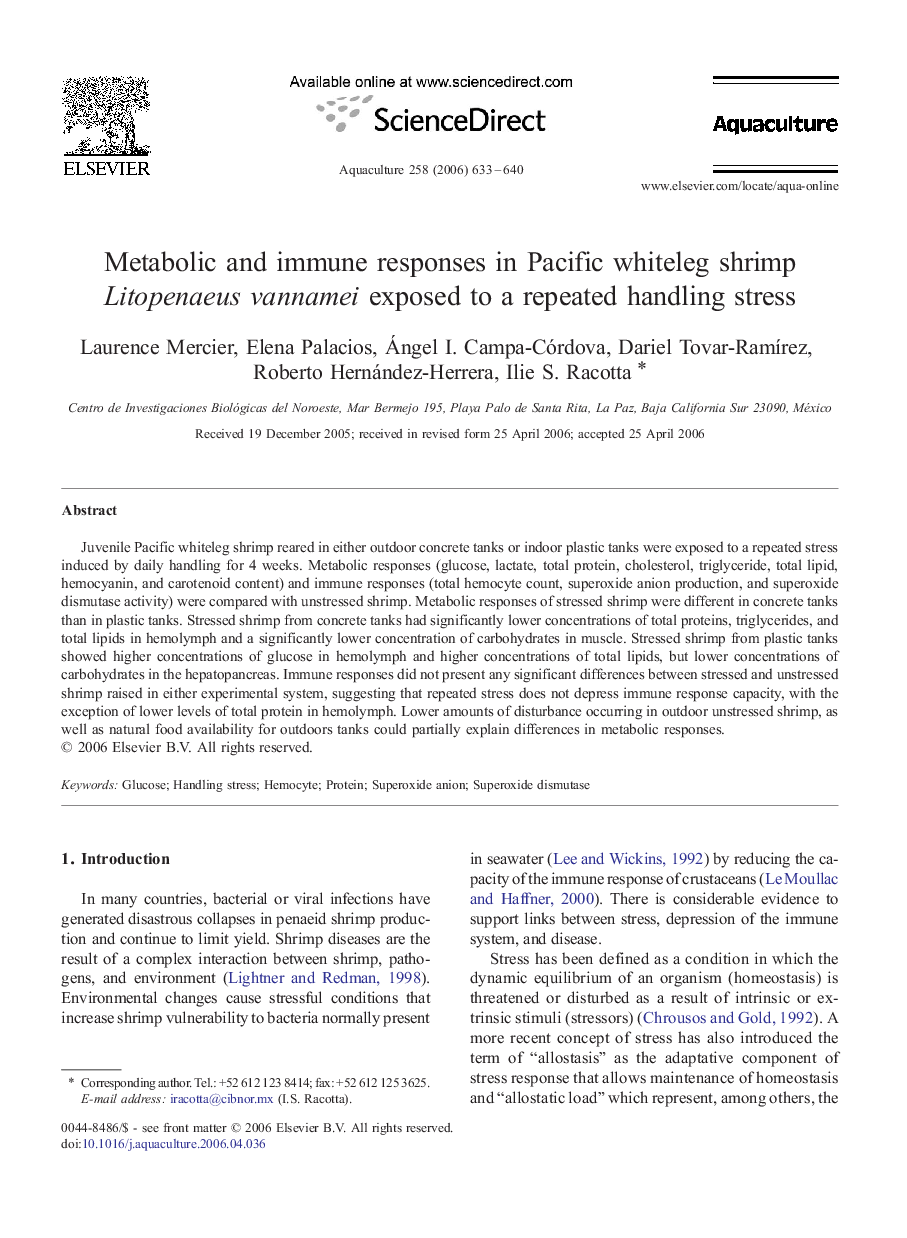| Article ID | Journal | Published Year | Pages | File Type |
|---|---|---|---|---|
| 2425881 | Aquaculture | 2006 | 8 Pages |
Juvenile Pacific whiteleg shrimp reared in either outdoor concrete tanks or indoor plastic tanks were exposed to a repeated stress induced by daily handling for 4 weeks. Metabolic responses (glucose, lactate, total protein, cholesterol, triglyceride, total lipid, hemocyanin, and carotenoid content) and immune responses (total hemocyte count, superoxide anion production, and superoxide dismutase activity) were compared with unstressed shrimp. Metabolic responses of stressed shrimp were different in concrete tanks than in plastic tanks. Stressed shrimp from concrete tanks had significantly lower concentrations of total proteins, triglycerides, and total lipids in hemolymph and a significantly lower concentration of carbohydrates in muscle. Stressed shrimp from plastic tanks showed higher concentrations of glucose in hemolymph and higher concentrations of total lipids, but lower concentrations of carbohydrates in the hepatopancreas. Immune responses did not present any significant differences between stressed and unstressed shrimp raised in either experimental system, suggesting that repeated stress does not depress immune response capacity, with the exception of lower levels of total protein in hemolymph. Lower amounts of disturbance occurring in outdoor unstressed shrimp, as well as natural food availability for outdoors tanks could partially explain differences in metabolic responses.
